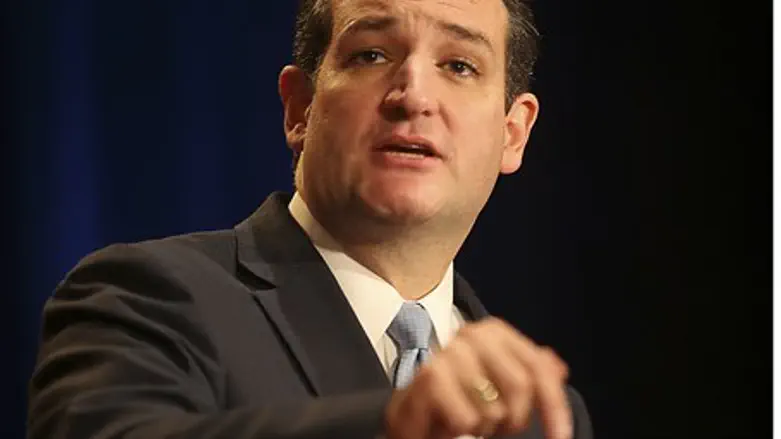
Leading Republican Senator and Christian supporter of Israel Ted Cruz (R-Tx) was booed off stage at a gala dinner in support of the Middle East's embattled Christian minority, after voicing support for Israel.
Cruz was the keynote speaker at the event, hosted by the recently-founded In Defense of Christians (IDC) organization. In his speech, he declared that Christians "have no greater ally than Israel" - the only state in the region whose Christian population is growing as opposed to shrinking.
"Tonight, we are all united in defense of Christians. Tonight, we are all united in defense of Jews. Tonight, we are all united in defense of people of good faith, who are standing together against those who would persecute and murder those who dare disagree with their religious teachings," Cruz said, according to The Daily Caller.
"Religious bigotry is a cancer with many manifestations," he continued. "ISIS, Al Qaeda, Hezbollah, Hamas, state sponsors like Syria and Iran, are all engaged in a vicious genocidal campaign to destroy religious minorities in the Middle East.
"Sometimes we are told not to loop these groups together, that we have to understand their so called nuances and differences. But we shouldn’t try to parse different manifestations of evil that are on a murderous rampage through the region. Hate is hate, and murder is murder. Our purpose here tonight is to highlight a terrible injustice, a humanitarian crisis."
But some audience members clearly didn't agree with his call for unity among non-Muslims in the Middle East, and began to boo and shout for him to get off the stage.
Responding to the heckling, Cruz retorted: "Those who hate Israel hate America. Those who hate Jews hate Christians. If those in this room will not recognize that, then my heart weeps.
"If you hate the Jewish people you are not reflecting the teachings of Christ. And the very same people who persecute and murder Christians right now, who crucify Christians, who behead children, are the very same people who target Jews for their faith, for the same reason."
But even as IDC President Toufic Baaklini called for the hecklers to allow Cruz to speak, the booing and calls of "leave the stage" only got louder, and Cruz had clearly heard enough.
"If you will not stand with Israel and the Jews then I will not stand with you. Good night, and God bless," he concluded, before abruptly walking off the stage.
The Middle East's Christian population, whose presence predates the founding of Islam by hundreds of years, is currently facing its greatest threat since the Islamic conquest of the seventh century. Already under attack from Al Qaeda and other Islamist groups - most notably in Iraq and Egypt - and severely oppressed by hardline regimes such as Iran and Saudi Arabia, the rise of the even more brutal Islamic State, or ISIS, has seen their situation deteriorate further.
As ISIS carried out what Amnesty International has termed a campaign of ethnic-cleansing of a "historic scale" through Syria and Iraq, Christians and other non-Sunni Muslims have been faced with a bleak choice between forced conversion or death, forcing hundreds of thousands to flee the advancing jihadi forces. Christians - known in Islamic sctriptures as a "People of the Book" - are offered a third option which others are not: if they remain they can live as second-class citizens known as dhimmis, and pay a special additional tax for non-Muslims known as jizya.
The conditions under which such dhimmis are forced to live were described in graphic terms by an ISIS-supporting Islamist in the UK earlier this year.
Many Middle Eastern Christians are in fact supportive of Israel - though they may not always state so openly for fear of reprisals - given that the Jewish state is the only country in the region where Christians are granted security and equal rights, and are not threatened with extinction. Recent Islamist advances in the Middle East have seen this trend increase, with more and more Israeli Christians signing up for the army and national service.
But others are decidedly more hostile, identifying with hardline anti-Zionist trends within the wider Arab community of which they are a part.